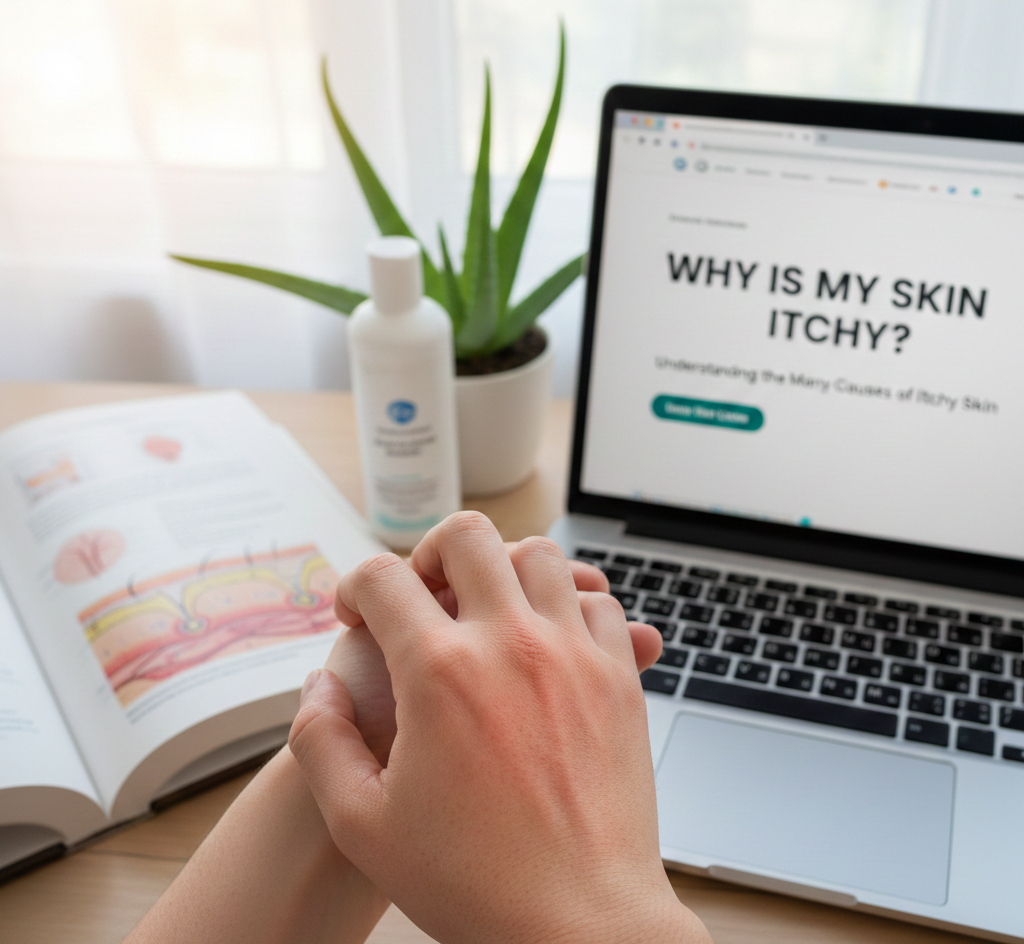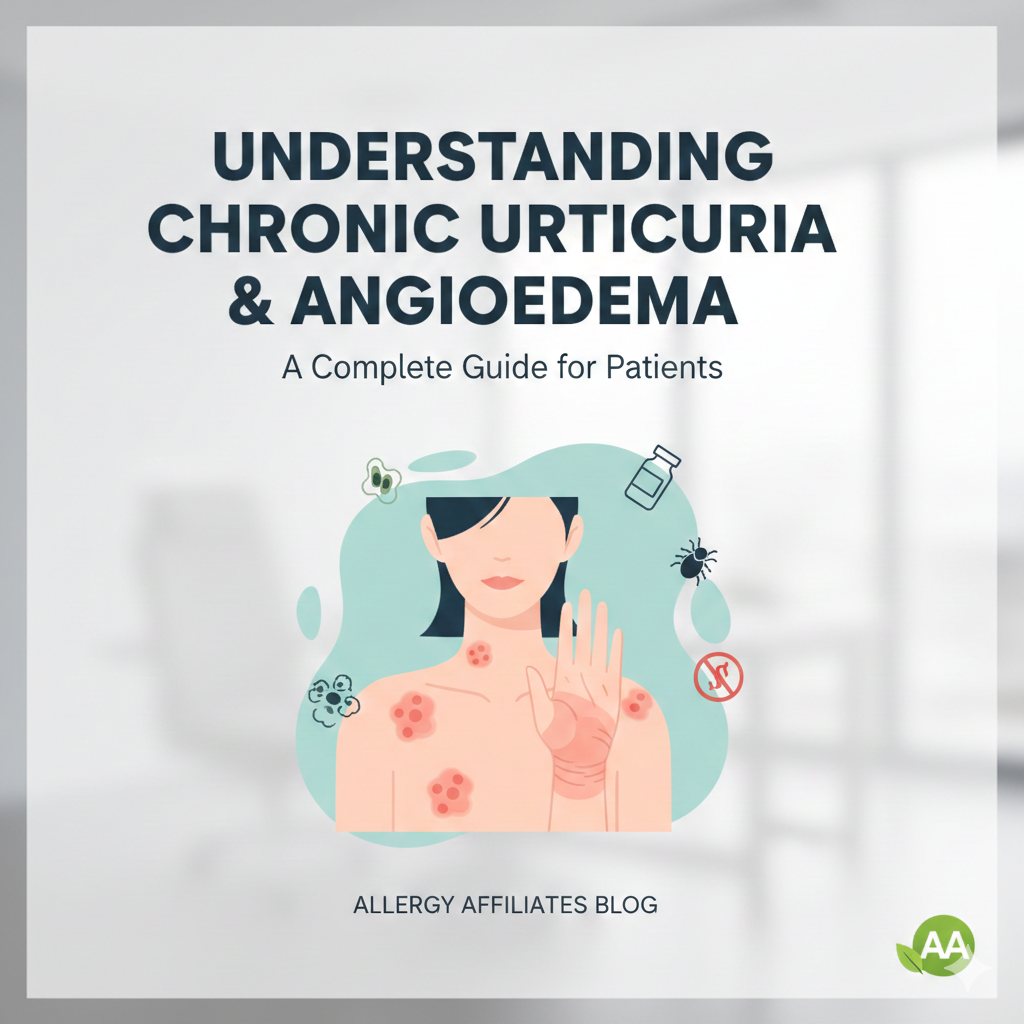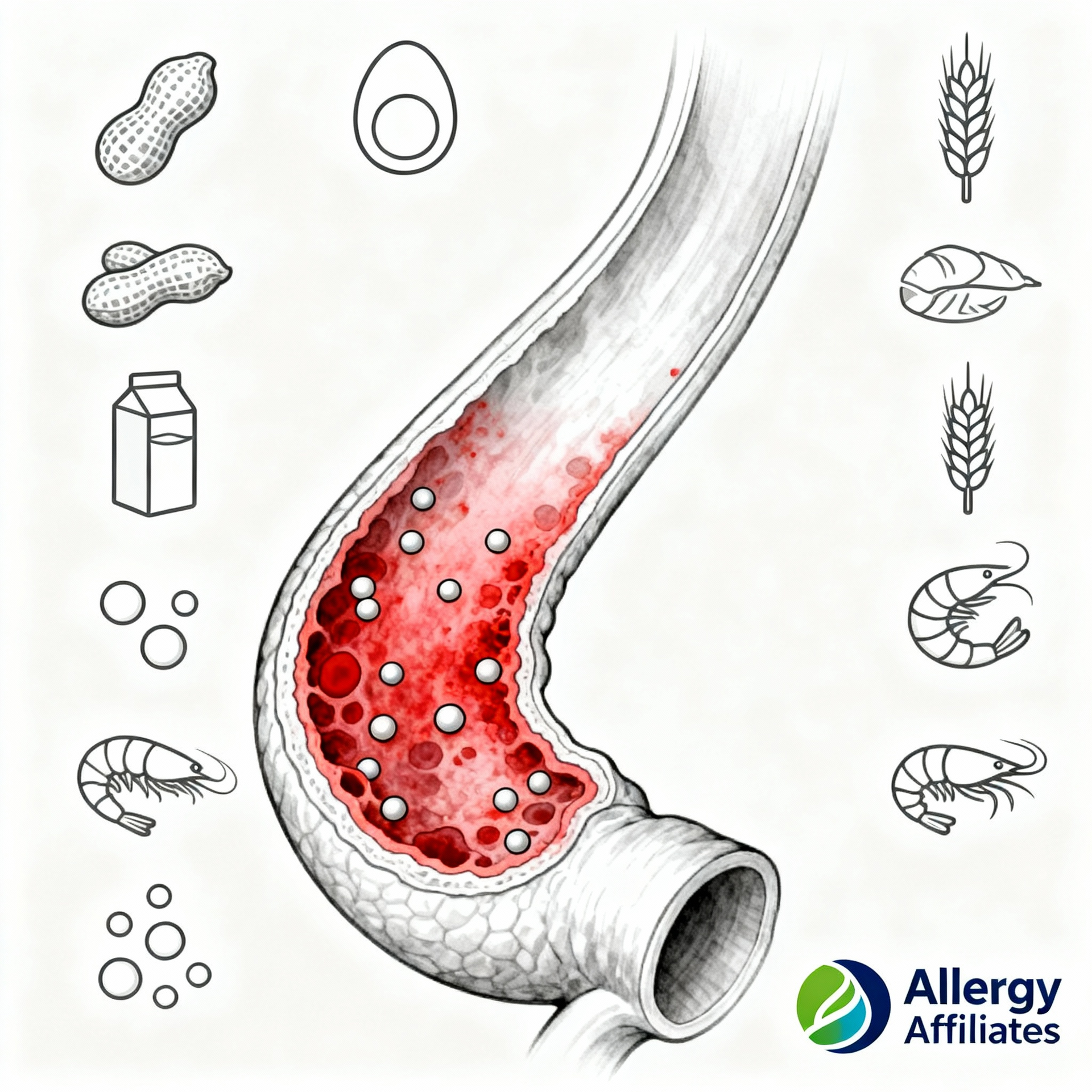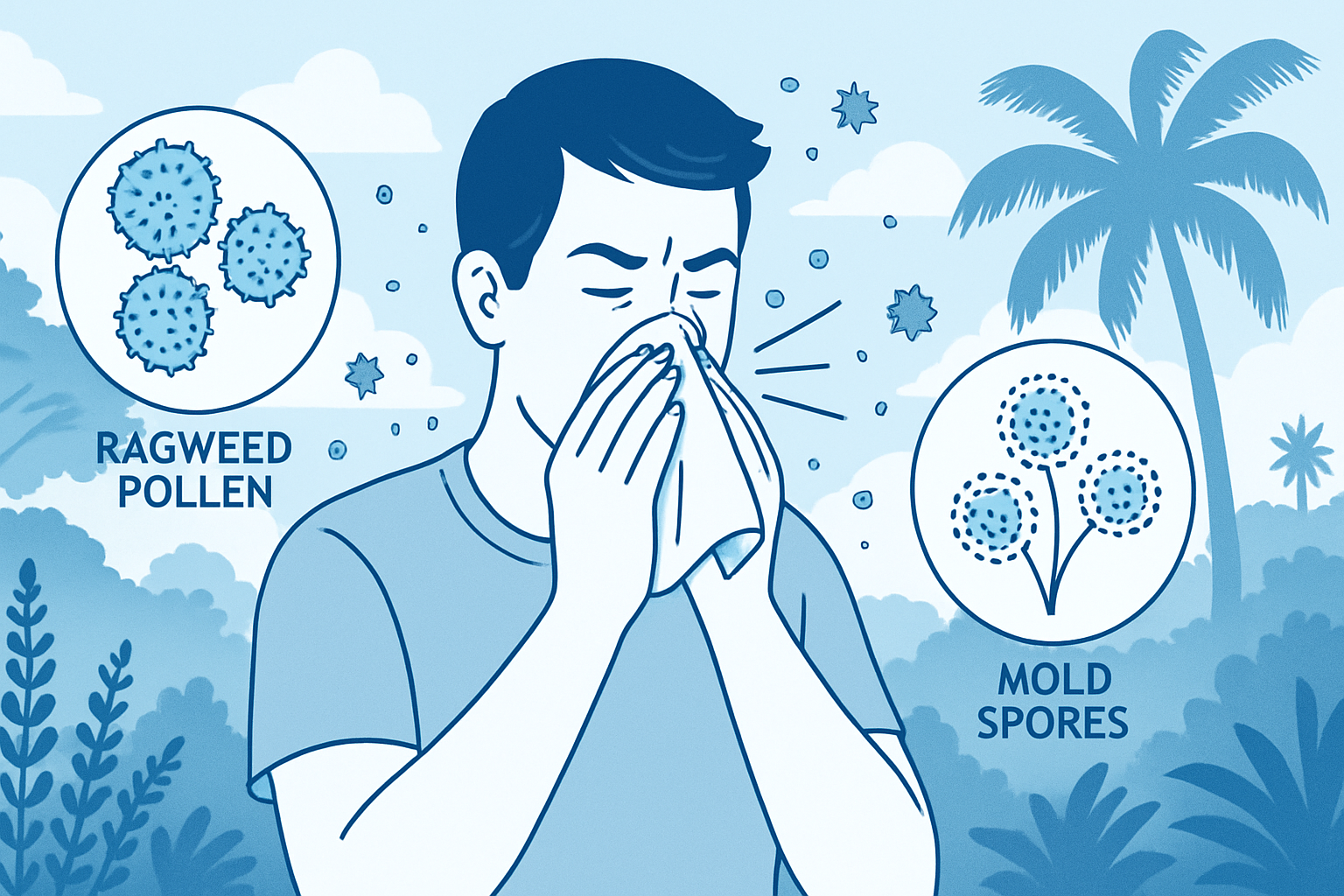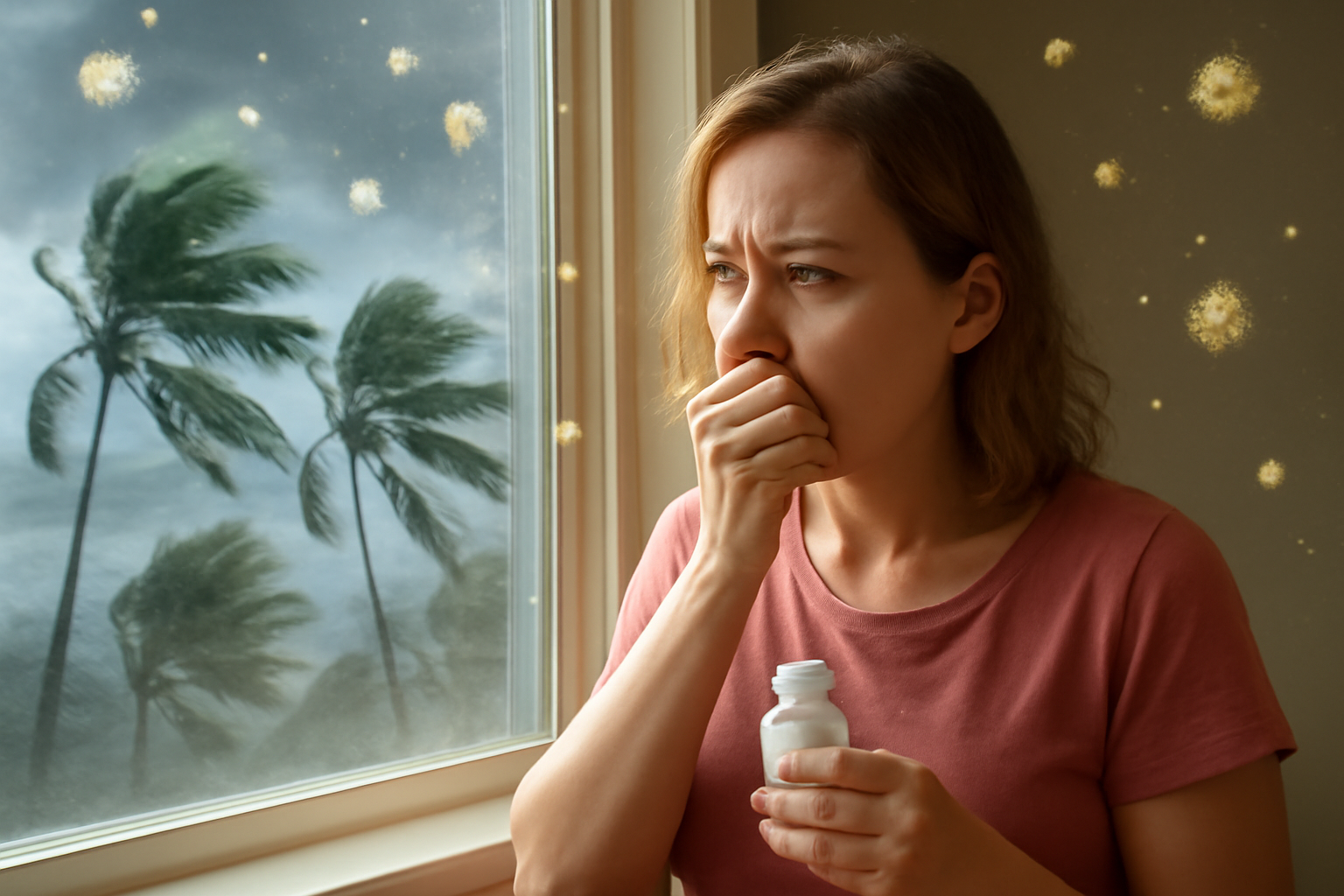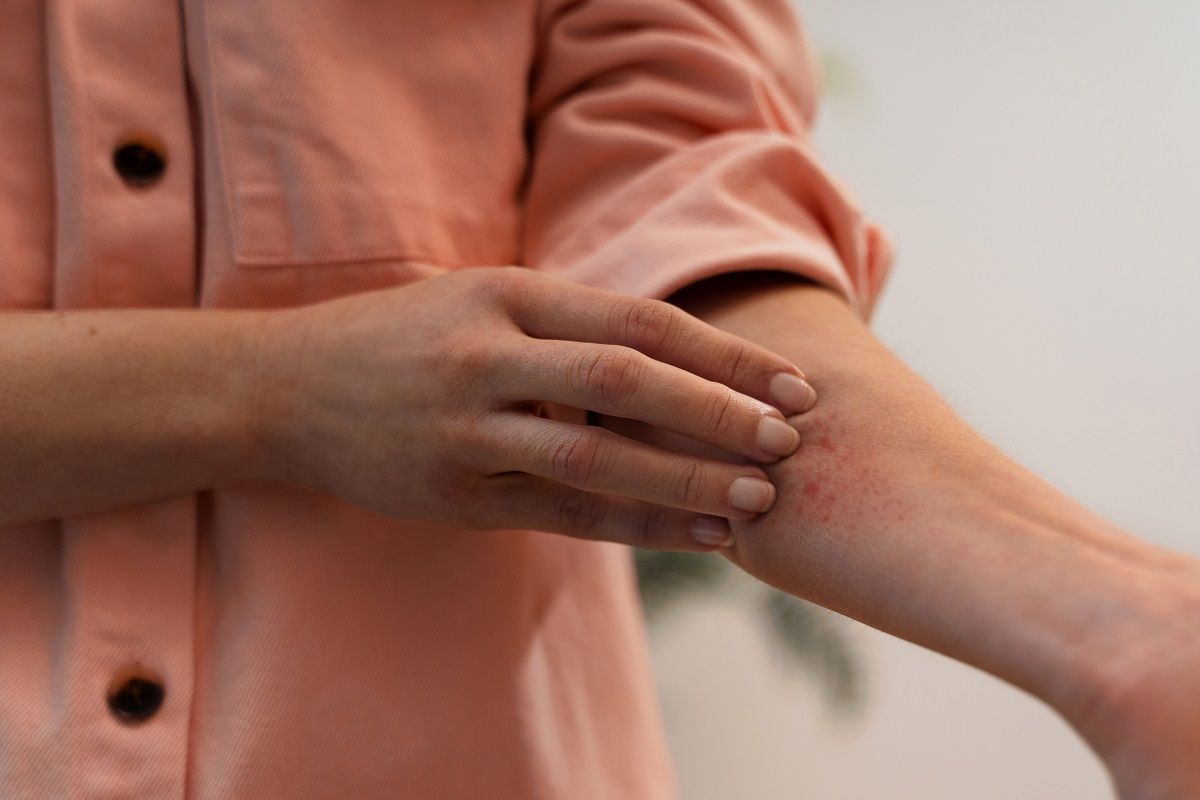
Accepting the Challenges of Eczema During Winter
As winter approaches, we often prepare for the festivities that come with the season while keeping ourselves warm. However, for people with eczema, the colder months mean more than just getting cozy and ready for the holidays – it means the threat of frequent eczema flare-ups looms on the horizon once again.
Understanding the underlying causes of eczema flare-ups during winter helps you take appropriate preventive measures and keep your symptoms under control. This blog explores the science behind winter eczema and provides practical tips to manage this chronic skin condition. Get yourself a cup of your favorite hot beverage, and unveil the best ways to manage eczema in the frosty season.
What is Eczema?
Atopic dermatitis, widely known as eczema, is a chronic skin disorder that causes itching, redness and the formation of rash-like patches.
What Are the Common Symptoms of Eczema?
People with eczema may experience symptoms such as dryness, swelling, and blistering of the skin, leading to discomfort and diminished quality of life.
What is the Link Between Eczema and Cold Weather?
While eczema flare-ups can occur at any time, they are notably more frequent during the colder months. If you often experience symptoms during winter, you most likely have cold-induced eczema.
What Are the Types of Eczema?
There are many types of eczema, each with distinct characteristics. Understanding the specific type is crucial for personalized and effective management.
- Atopic dermatitis
- Contact dermatitis
- Dyshidrotic eczema
- Nummular eczema
- Seborrheic dermatitis
- Stasis dermatitis
Each type of eczema has its unique symptoms and triggers, so it's essential to speak with an
allergy expert or dermatologist to receive an
accurate diagnosis and
treatment plan.
What Are the Triggers for Eczema?
Both environmental factors and a genetic predisposition may trigger eczema.
- Environmental Factors
External elements like temperature, humidity, and allergens significantly affect eczema flare-ups.
- Genetic Predisposition
Individuals with a family history of eczema are more susceptible to experiencing symptoms.
- Colder Weather and Skin Dryness
The low humidity levels during colder months (eczema season) reduce the skin's moisture, leading to increased dryness and sensitivity. Your hands are more exposed than the rest of your body. That's why you're more likely to develop winter eczema on your hands.
- Influence on Itchiness and Inflammation
Cold weather may intensify the itchiness and inflammation associated with eczema, causing discomfort for those with the condition.
The Science Behind Eczema in Cold Weather
- Skin Barrier Function
In cold weather, the skin barrier function becomes less effective, leading to dryness, itching, and even eczema. The cold air, low humidity, and harsh winds reduce the skin's natural oils, making it more vulnerable to damage and irritation.
- Immune Response
The body's immune response is heightened in colder temperatures, triggering inflammatory reactions in people with eczema.
- Role of Humidity
Low humidity levels contribute to moisture evaporation from the skin, exacerbating dryness and irritation.
Tips for Managing Eczema in Winter
- Use Moisturizing Techniques
Regular and intensive moisturizing helps restore the skin's moisture barrier, reducing the impact of cold weather.
- Choose Proper Clothing
Selecting appropriate clothing, such as soft fabrics and layered garments, minimizes skin irritation.
- Try Allergy-Friendly Hydration and Diet Methods
Staying hydrated and adopting a skin-friendly diet contribute to overall skin health, potentially alleviating eczema symptoms.
Avoiding Common Triggers
- Learn and Avoid Winter Allergens
Identifying and avoiding common winter allergens like dust mites and pet dander prevents eczema flare-ups.
- Use Indoor Heating Systems
Central heating systems decrease indoor humidity, necessitating the use of humidifiers to maintain optimal moisture levels.
- Use High-Efficiency Particulate Air Filters
High-Efficiency Particulate Air filters, or HEPA filters, are a type of air filtration machine commonly used in HVAC systems and air purifiers. HEPA filters trap and remove small particles from the air, including allergens, dust, and other pollutants.
Lifestyle Changes for Eczema Relief
- Stress Management
Stress exacerbates eczema symptoms. Make time for stress-reducing activities like breathing exercises and meditation to improve overall well-being and, indirectly, reduce eczema flare-ups.
- Regular Skincare Routine
Establishing a consistent skincare routine, including gentle cleansing and moisturizing, is vital for eczema management.
- Importance of Dermatologist Consultation
Regular consultations with a dermatologist help monitor and adjust treatment plans based on individual needs.
- Hearing Experiences With Eczema in Cold Weather
Listening to personal stories of individuals managing eczema in cold weather provides valuable insights and coping strategies.
- Coping Mechanisms
Sharing effective coping mechanisms, such as mindfulness and self-care, may inspire others to seek out solutions and share them with people facing similar challenges.
Future Developments in Eczema Treatment
- Ongoing Research
Current research initiatives aim to explore innovative treatments and therapies for eczema, offering hope for future advancements.
- Promising Therapies
New treatment modalities, including targeted medications and immunomodulators, promise to relieve eczema sufferers.
Eczema-Friendly Products
- Recommended Skincare Products
Choosing skincare products with gentle ingredients enhances the effectiveness of eczema management.
- Ingredients to Look For
Key ingredients like ceramides and hyaluronic acid contribute to maintaining a healthy skin barrier, reducing eczema symptoms.
Impact of Global Warming on Eczema
- Changing Climate Patterns
The sudden changes in weather patterns may influence the prevalence and severity of eczema globally.
- Potential Increase in Eczema Cases
Environmental shifts could lead to more individuals experiencing eczema, necessitating proactive measures.
Eczema in Different Climates
- Contrasting Experiences
Exploring how individuals in different climates manage eczema highlights the adaptability of skincare routines.
- Adaptations for Varying Conditions
Tailoring eczema management to specific climate conditions emphasizes the importance of personalized care.
Recap of Key Points
Understanding the interplay between eczema and colder weather is crucial for effective management and relief. Each individual's experience with eczema is unique, emphasizing the need for personalized approaches to care. Your best option is to consult a healthcare provider specializing in skincare or allergies. These medical professionals provide accurate diagnoses, customized treatment plans, and expert management tips. Go to the nearest Florida allergy center today!
FAQs about Eczema
- Does cold weather cause eczema?
Eczema may manifest suddenly due to genetic predisposition and environmental triggers, including cold weather.
- Is winter eczema a common skin disorder?
While eczema may occur anytime, winter's dry and cold conditions often exacerbate symptoms, making it more noticeable during this season.
- How can I protect my skin during harsh winters?
Protect your skin by moisturizing regularly, wearing appropriate clothing, and using humidifiers to maintain indoor humidity.
- Are natural remedies effective for eczema in cold weather?
Some natural remedies, like coconut oil and oatmeal baths, may provide relief, but individual responses vary, and consultation with a dermatologist is a must.
- Should I adjust my skincare routine seasonally?
Adapting your skincare routine to seasonal changes, especially in colder weather, is essential for effectively managing eczema.
Live Eczema-Free and Survive Florida's Allergy Season!
You're on the right track if you search online for "eczema cold weather" and "Florida asthma and allergy!" Bradenton and Sarasota Allergist Dr. Sabharwal and her board-certified allergy experts provide safe and effective eczema treatment using proven methods.
Ensure an eczema-free life during winter by calling 941-792-4151 or scheduling an appointment
here.
